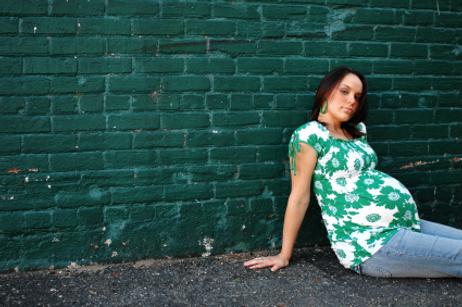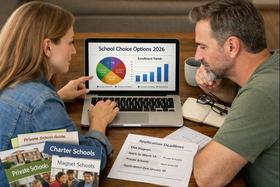Teen pregnancy is not a new issue, but schools and parents still struggle with the challenges surrounding this situation. While statistics show that teen mothers who graduate from high school now have a better shot at supporting themselves and their children, keeping them in school until graduation is often easier said than done. With some school districts across the country facing alarming statistics on the teen pregnancy front, the problem does seem to be becoming more prevalent in some areas of the nation. Combine rising pregnancy rates with budget cuts that are forcing some schools for pregnant teens to shut their doors, and the problems facing pregnant teens seem to be getting more prominent while the options are getting smaller. We will look at how some schools deal with their pregnant students today and the legal ramifications of this issue.
What the Law Says
Many pregnant teens may find attending school daily more challenging than they are willing to manage. Consider the morning sickness that makes is difficult for some girls to get to school in the morning, regular doctor visits that result in frequent absenteeism, and the fear of social stigmas, and you can see why some are hesitant to continue their education path in their current condition. However, in a legal guide titled "" states, "The [North Carolina] state constitution guarantees a right to education and promises equal opportunities for all students in public schools," and this holds in all of the states.
The report states, "By statute, every parent or 'other person having charge or control of a child between the ages of seven and sixteen" must send the child to school. A parent may be prosecuted for failing to do so. In addition, failing to send a child to school can be considered neglect."
Other states have similar laws, so it seems clear that students must continue attending school until age 16, pregnant or not. But what happens after the age of 16? Many pregnant teens and teen mothers end up dropping out before graduation because earning a high school diploma and caring for a baby can be more than a little challenging to manage simultaneously.
What Happens
Despite what state constitutions promise, the path becomes difficult, and many girls end up dropping out. They try to find work that will support themselves and their babies, but without a high school diploma, good jobs are hard to find. Many end up on welfare and food stamps鈥攁 difficult cycle to break away from once they hit that point.
It's not only the girls that have difficulty mixing school and parenthood. Many schools have also been less than hesitant to keep girls in school once their pregnancies become evident. Some downright discourage girls from remaining in school, either by offering them alternative education options or by creating policies that make it very difficult for girls to succeed in classes while they are pregnant.
For example, some schools do not allow students to finish a semester if they have more than 10 unexcused absences during the period. However, these same schools often will not grant pregnant girls excused absences for maternity leave or other pregnancy and parenting-related obligations.
This video explains what you need to know about teenage pregnancy.
Is Pregnancy Contagious?
In some cases, schools are justified in their concerns about allowing pregnant teens to remain in school. According to a report in Time three years ago, Gloucester High School in Virginia was seeing an alarming number of girls requesting pregnancy tests. Upon further investigation, it was found that many of the pregnant girls had formed a "pregnancy pact" to ensure all of them had babies at the same time. Economic factors may play a role in this choice since the industrial town where the college is located has suffered a big hit from the recent economic slowdown. With many students facing rather dismal futures, pregnancy may seem like one of the best options.
At Frayser High School in Memphis, a similarly high number of teen pregnancies abound, with as many as 11 percent of the student population expecting. According to a New York Daily News report, socioeconomic factors may also play a role in the high pregnancy figures at this location. Frayser is considered a Title One school, which means at least 95 percent of students are eligible for free lunches, and more than 100 students drop out between 11th and 12th grade.
Special Schools
In some states, special schools are available for pregnant students. A report at the Christian Science Monitor describes how one of these schools in Boise was instrumental in helping a certain teen mother stay in school. Alicia Mattocks credits Marian Pritchett School with allowing her to get her high school diploma and enroll in Boise State University. However, funding cuts have resulted in many of these schools closing around the country.
Helping or Condoning?
One of the issues facing schools that want to support pregnant teens is the attitude that assistance is condoning their pregnancies. While schools want to see these students succeed, they don't want to send the message to other students that pregnancy in the teen years is a good choice. An article on summarizes the philosophy, "Helping her [a pregnant student] return to her studies might send the message that staying in school is the right thing to do, regardless of what your circumstances are. It is a sad reality that so many teenagers are pregnant. Denying that reality is unlikely to prove the most promising approach to changing it."
Hopefully, more options and assistance programs will be available in the future to help pregnant students continue on the path of academic success.
Questions? Contact us on Facebook. @publicschoolreview












